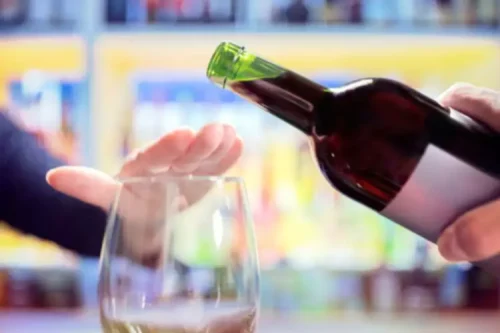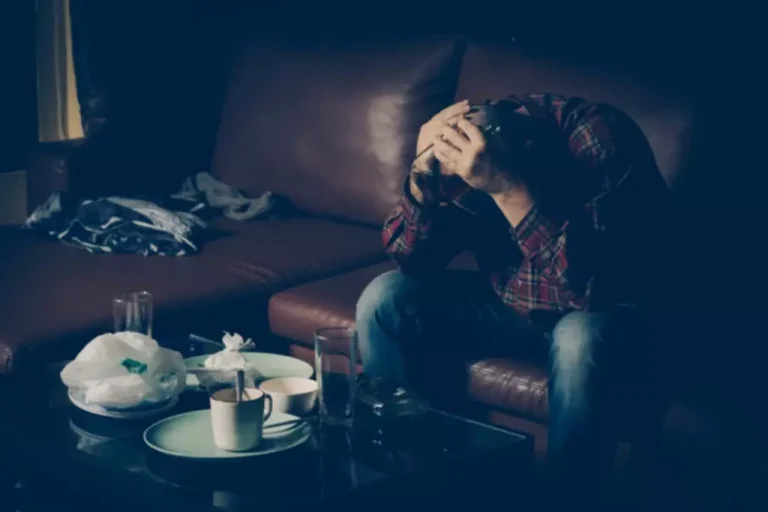
Studies have shown a different trend of alcohol use in people who are diagnosed with generalized anxiety disorder or panic disorder. For many people with these mental health conditions, unhealthy drinking behaviors begin around the same time as the disorder’s symptoms. Finally, the assumption that common areas of construct space exist across the disciplines of psychiatry, psychology, and neuroscience is open to debate. For example, medically oriented researchers might view subclinical negative affect as qualitatively rather than quantitatively distinct from diagnosed anxiety disorders. Similarly, it could be argued that dysregulated biological stress responses share little construct space with subjective negative affect and drinking to cope. However, as already noted, a dysregulated stress response is a known biological marker for the development of anxiety disorders and AUD, as well as for relapse.
- And, emotionally, alcohol can make you not only more anxious, but more irritable, more impulsive and less inhibited — not just after a drink, but compounded over time, says Dr. Mosquera.
- Therefore, several processes that could mediate the relation between stress and alcohol consumption at different stages of alcohol use progression are assessed.
- The MESA study is a randomized controlled study that started in December 2018 and is being conducted in a laboratory setting at the Medical School Hamburg.
- Patients can expect a reduction in alcohol cravings and anxiety symptoms within a few weeks of starting treatment.
- Young adults struggling with this disorder will often do anything to avoid their fears, such as skipping classes that require public speaking or accepting jobs beneath their abilities or desired pay so they can work alone.
Using Alcohol To Cope with Anxiety
Agoraphobia, the fear of being trapped far from home, can arise out of someone’s anxiety of being in Halfway house social situations. They can begin imagining the horrible things that can be happening if they are unable to get home, everything from people hating them, to something potentially happening at home. As is the case with many dual-diagnosis conditions, addiction to alcohol and anxiety commonly exist together within the same person. Anxiety is both a reason that many individuals drink and a result of drinking. Only one notable study of COA’s has demonstrated a higher-than-expected risk for these major psychiatric disorders. However, as pointed out by Kushner (1996), larger studies of COA’s who have passed the age of risk for most disorders will need to be conducted before final conclusions can be drawn.
Treatment options for alcohol use disorder
Alcohol-induced anxiety can last for several hours, or even for an entire day after drinking. Drinking alcohol can have serious consequences if you’re being treated for anxiety. Having a drink might seem like a good way to ease anxiety, but you may be doing more harm than good. If you’re in the depths of hangxiety and need fast relief, Dr. Greenfield recommends working through it with meditation, grounding activities, calming yoga poses or stretches, or deep breathing exercises.

Our Approach to Treating Alcohol and Anxiety Includes:
Dimensional variables that are not normally distributed (expected e.g. for hair cortisol concentration, salivary cortisol and alpha amylase) will be Box–Cox transformed anxiety and drinking towards normal distribution. For all biological and behavioral variables, participants with outlying values of more than three standard deviations above the mean will be excluded from the respective analysis. Besides, robust linear regressions will complement conventional linear regressions because they down weight observations with large residuals to meet the assumption of equal variances of residuals. Composite measures of the entire cortisol secretion during the TSST (area under the curve with respect to ground; AUCG) and the cortisol stress reactivity (area under the curve with respect to increase; AUCi) will be calculated 112.

Constant fears of someone breaking in or their house catching fire may be some of the triggers behind their anxiety, or just an impending sense of doom brought on by themselves or some external factor. Generalized Anxiety Disorder is a strong reason that some turn to alcohol as self-medication. Before you start drinking, set an intention around how much you want to drink. Moderate drinking can be part of a healthy lifestyle, but some people find it hard to cut back, despite the consequences.
- What’s more, the impact alcohol has on your brain can actually work against you to increase anxiety.
- Quitting alcohol can also lead to long term anxiety from extended withdrawal symptoms, known as protracted withdrawal.
- However, you can make lifestyle changes to help you reduce your anxiety as well as learn to cope with it.
- Several proposed explanations exist for the link, including genetics, a person’s environment, and the brain mechanisms related to addiction and anxiety symptoms.


